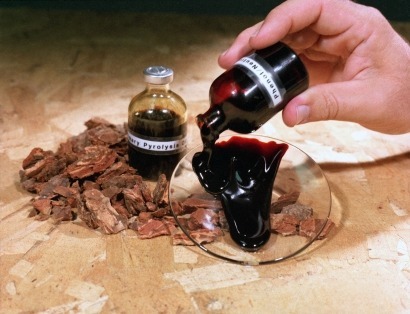
Fortum’s new bio-oil plant in Joensuu, Finland, will be the first of its kind in the world and also unique in that it will be integrated with the company’s combined heat and power plant on the same site. The bio-oil will be produced from first thinnings and other wood biomass such as forest industry by-products sourced locally. It will increase Fortum’s wood use in energy production in Joensuu from 300,000 to 450, 000 solid cubic meter per year corresponding to the heating needs of more than 10,000 households.
The plant will also create numerous jobs in raw material sourcing, at the production plant itself and in logistics. It is based on fast-pyrolysis technology in which wood biomass is rapidly heated in oxygen-free conditions. The company has invested around 30 million euros in the project and in modification work to ehat plants. The project has also received around 8 million euros in government investment subsidies.
Development and conceptualisation of the new technology has been conducted collaboratively between Fortum, Metso, UPM and the VTT Technical Research Centre of Finland. The research for the project formed part of TEKES – the Finnish Funding Agency for Tech-nology and Innovation’s Biorefine programme.
“The use of bio-oil has significant positive environmental impacts because energy produced with bio-oil reduces carbon dioxide emissions by as much as 90% or more compared to fossil fuels” said Fortum’s Chief Financial Officer, Markus Rauramo, who inaugurated the plant alongside Finnish Parliament Member and Chair of the Commerce Committee Mauri Pekkarinen.
Fortum’s Otso bio-oil can be used at heat plants or in industrial steam production as a replacement for heavy and light fuel oil. In the future the company also hopes it will be used as a raw material for biochemical or traffic fuel. The company has also signed its first agreement to supply bio-oil produced in Joensuu to Savon Voima which will use it to replace the use of heavy and light fuel oil in its district heat production in Iisalmi. Fortum will also use it in its own heat plants in Joensuu and in Vermo, Espoo.
For additional information:

